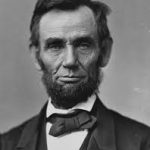
Abraham Lincoln was born on February 12, 1809, in Kentucky. He experienced a challenging childhood and pursued education with limited resources. However, he stood out with his constant drive for self-improvement and learning. In the 1830s, he moved to Illinois and began his career as a lawyer. Throughout his legal career, he gained a reputation for being fair and honest.
Lincoln discovered his interest in politics at a young age. He initially joined the Whig Party and was elected to the Illinois State Legislature in 1834. Later, in 1846, he was elected to the United States House of Representatives. During this period, he became known for his anti-slavery views and supported the passage of anti-slavery laws. However, his greatest achievement came in 1860 when he was elected as the President of the United States, representing the Republican Party.
During his presidency, Lincoln had to address the issue of slavery, which brought the country to the brink of civil war. He consistently advocated for the abolition of slavery and issued the Emancipation Proclamation on January 1, 1863, declaring all slaves to be free. This decision changed the course of the American Civil War and became a turning point in the fight against slavery.
Furthermore, Lincoln made efforts to unite the country and promote harmony. His Gettysburg Address stands as a testament to his leadership skills and foresight. In his speech, he emphasized his belief in democracy and highlighted the struggle of a reborn nation with the end of slavery.
However, Lincoln’s leadership journey tragically came to an end. On April 14, 1865, he was assassinated by John Wilkes Booth, a Confederate sympathizer. His untimely death left a void in American politics and a nation mourning the loss of a remarkable leader.
Abraham Lincoln’s legacy as a great leader and emancipator lives on. His unwavering commitment to justice, equality, and unity continues to inspire generations. He will always be remembered as a pivotal figure in American history, whose actions shaped the course of the nation and advanced the cause of freedom.



















Add Comment